- Do you subscribe to Dharma Dog Training’s Newsletter? You should.
- A Unique Campaign from The Humane Society of the United States
- Rabid bats in Omaha- Stay safe, prepared with these tips
- Springtime Activities in Omaha
- Mill Dog Monthly from Bailing Out Benji
- World Spay Day, Legislative Alert in Nebraska
- Attend the Nebraska Rescue Council’s monthly meeting this Saturday
- Five Hard-to-Ignore Reasons to Adopt!
- Paws in Pink to Benefit Breast Cancer Foundation
- VCA, Inc. Acquires MidWest Vet Specialists from Kansas State University
Winter’s here- tips on winterizing your home and pets
We’ve felt the cold here in Omaha for the first time, but not the last. We’ve got a long way to go until spring, so it’s a perfect time to think about making your pet’s home and environments safe from the cold. The Lake Tahoe Humane Society and Society for the Prevention of Cruelty for Animals has provided us some great tips on winterizing our pets and the places they’ll roam during these cold months.
This information appears in a recent article published by the Tahoe Daily Tribune, but the tips are surely applicable and helpful for pet owners here in Omaha. You can read the entire article here; below is a summary of the great, useful information that the organizations have provided. The article calls this a “winter checklist.” Make sure you’ve got all of these things on your own winter checklist along with all the other things you do to protect yourself and your pets from the cold.
- If you leave water outside for your animals, make sure to freshen it a couple of times per day. Water and water bowls will surely freeze, so feed and water your animals inside whenever possible.
- It may be a good idea to install a doggie/kitty door. Your animals may like to be outside in the winter, but if it gets too chilly, these doors give pets an opportunity to come inside at their leisure when it’s just too cold.
- Check the temperatures inside your garage and any other outdoor enclosures that your pets may occupy to prevent hypothermia and freezing.
- In your garage, check the floor daily for antifreeze that may have escaped from your radiator. Also, make sure to sweep away any loose ice melt. These things can be poisonous to animals. When you buy these things, ask if the store carries pet-friendly brands. They are out there, so you may want to choose them as an option to avoid any potential danger.
- Leave pets at home on errand day. I know Fluffy and Fido love to ride in the car with you, but it’s dangerous to leave them in the car while you run into the store for groceries.
- Check your dog or cat’s paws daily for any cracks, cuts, etc. as the cold is conducive to creating these injuries. If you have concerns about your pet’s paws, check with your veterinarian. Often, there are paw-toughening ointments or gels available to you and your pet.
- Chimney smoke is dangerous to animals, especially birds. Drafty windows can also hurt avians and exotic animals, so make sure to caulk around them. You will be more comfortable and the risk of a cold draft that could harm your pet will be eliminated.
- Keep extra pet food in your pantry in case you get snowed in. When the power goes out or the snow gets to be too high to drive, this will bring you some peace of mind and keep your pets from going without food. A backup generator may also be a good idea.
- Maintain the temperatures of aquariums. When the water changes its temp even a few degrees, your fish could get into a bad spot.
- Survey your yard. Certain areas may produce snow drifts that will enable your dog to escape over a fence quite easily. Wood piles should also be kept away from fences. Do whatever you can to keep your pets in the middle of your yard so the inclination to climb or jump over a fence disappears.
- This may sound strange, but get into the habit of popping the hood and checking out the inside of your car before you head out. Wild and domestic animals gravitate towards your engine’s heat and have been known to crawl under and up into cars to be near the heat. Finding a dead squirrel under your hood in the spring doesn’t sound fun, does it?
- Adjust your pet’s diet for the winter to suit their weight management goals. For small pets, you may want to decrease caloric intake a bit during the winter as they are not as active and may put on unnecessary weight. For larger pets, increase calories and exercise so they maintain weight and energy levels.
These are but a few tips, but they are great nonetheless. Practice safety and get a move on. It’s getting colder and you don’t want to be stuck unprepared when winter is in full force. Have any tips that don’t appear above? Leave comments below or tweet them to us @PetsInOmaha.
Related Posts
Latest News
-
Join Us at Pick A Pooch 2025: A Fun-Filled Weekend for the Whole Family
A Fun-Filled Weekend for Pet Lovers and Families Alike Mark...
- Posted 1 year ago
- 0
-
Beardmore Presenting Sponsor At This Years Pick-A-Pooch event
🐾 We are thrilled to announce that Beardmore Subaru is...
- Posted 3 weeks ago
- 0
-
How Having A Pet Can Change Your Life
Having a pet can open your heart in ways that...
- Posted 2 months ago
- 0
-
How To Improve The Life Of Your Senior Pet
Do you have an elderly fur baby and want to...
- Posted 3 months ago
- 0
-
Springtime Activities To Enjoy With Your Furry Friends
Are you preparing for warmer weather and want some ideas...
- Posted 4 months ago
- 0
-
Pros And Cons Of Microchipping Your Pets
Have you considered whether your pets should be microchipped and...
- Posted 4 months ago
- 0
-
The Best New Fun Toys For Dogs And Cats
The Best New Fun Toys For Dogs And Cats Did...
- Posted 5 months ago
- 0
-
Heartfelt Ways To Show Your Pet You Love Them
Did you know there are more ways to show your...
- Posted 6 months ago
- 0




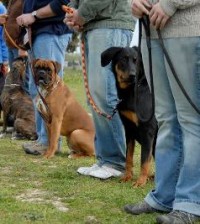

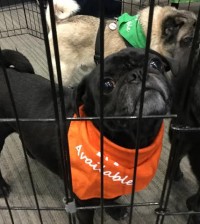





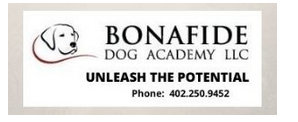


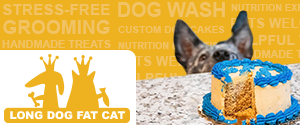


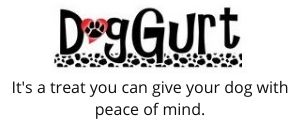





You must be logged in to post a comment Login